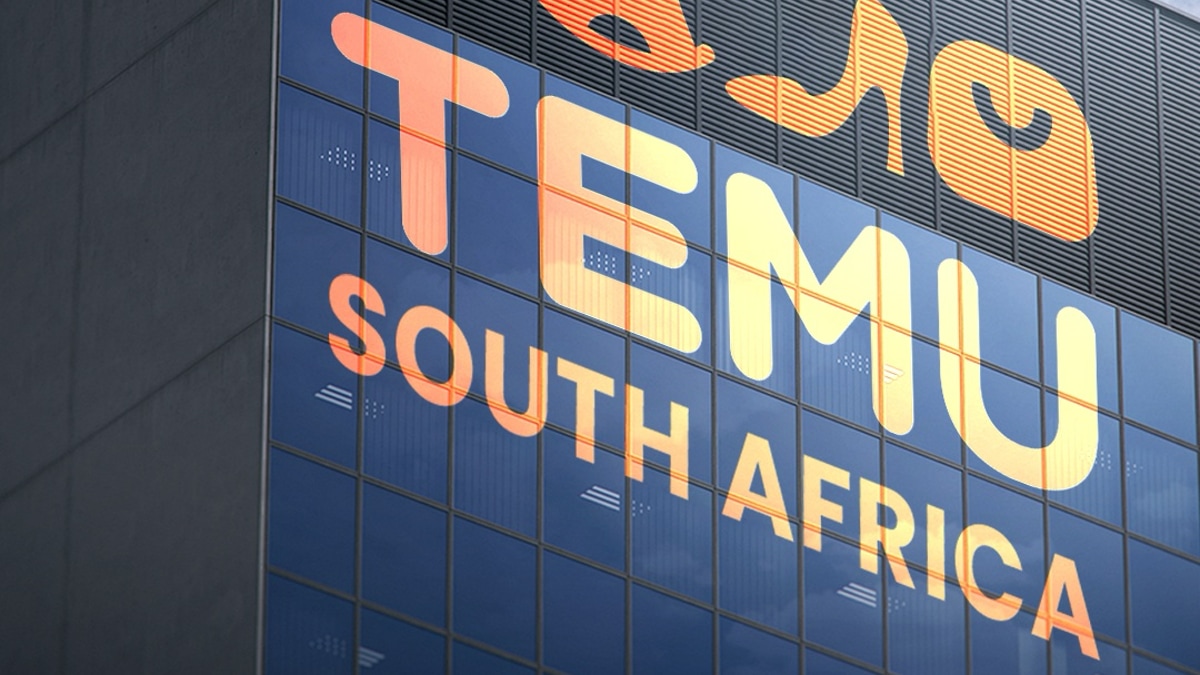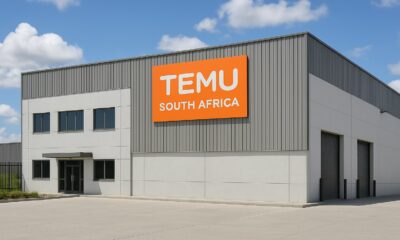Business
Temu Opens First Local Warehouse in South Africa, Promising Faster Delivery

Temu sets up shop in South Africa, literally with a new warehouse aimed at supercharging delivery speeds. But local retailers say it’s not all good news.
After months of testing the waters in South Africa’s e-commerce scene, Chinese mega-platform Temu has taken a bold next step, the launch of its first local warehouse.
This move, which quietly rolled out this month, marks a significant milestone in Temu’s South African expansion, 18 months after its debut. Now, shoppers can enjoy next-day or two-day delivery on selected items tagged as “local.”
But while Temu’s fast-tracked fulfilment is a win for consumers, it’s already ruffling feathers in the local retail industry.
Local Delivery, Global Disruption
South African customers scrolling through Temu may have noticed a new “local” tag on some product listings, indicating faster delivery from its newly opened domestic warehouse.
Until now, most Temu orders were shipped directly from China, typically arriving via Buffalo Logistics and Fastway Couriers. Now, with a local presence, Temu is positioning itself to compete head-on with local giants like Takealot, at lightning speed and rock-bottom prices.
Temu hasn’t disclosed which courier will handle deliveries from the local warehouse, nor has it officially responded to media queries. But the implications are clear: they’re here to stay, and they’re betting big on South Africa.
Aggressive Tactics, Explosive Growth
Temu’s South African surge mirrors its global playbook. Backed by a marketing war chest, reports say the company increased its ad budget by 1,000% in 2023, Temu has won over customers with flashy promos and discount-driven gamification, like digital spin-to-win deals that made first-time shoppers feel like winners.
That model came at a cost, though. Goldman Sachs estimated that Temu was losing $7 per order, sacrificing profits for market share.
Still, it worked. The company quickly gained traction in South Africa after its January 2024 launch, especially among budget-conscious buyers.
Trouble with the Taxman
Not everyone is celebrating Temu’s growth.
South African retailers, particularly in the clothing and tech sectors, have raised red flags over the tax concessions Temu benefited from. These loopholes allowed importers to pay a flat 20% duty on items under R500, with no VAT, a massive saving when compared to the 45% duty imposed on imported clothing.
Local brands said this created an unfair advantage, especially when Temu could ship clothes directly from China at prices that local manufacturers simply couldn’t match.
And there were safety concerns, too. Some electronics sold through Temu reportedly lacked proper South African certifications, raising questions about compliance.
SARS Steps In… Slowly
Responding to pressure, SARS initially planned to crack down, promising in mid-2024 to apply the full 45% clothing tax across the board, including on low-value shipments.
But by September, that plan had softened. Instead, SARS began adding 15% VAT on top of the existing 20% duty for smaller packages. Then in February 2025, new rules aligned with World Customs Organisation (WCO) guidelines were finally implemented, after months of industry consultation.
Still, critics argue the concessions remain problematic. Garry Marshall, chair of the South African Express Parcel Association, warned that removing the 20% flat duty system altogether could cripple import logistics, slowing customs to a crawl.
“Most courier traffic is cleared before it lands,” Marshall explained. “If every parcel required full documentation and tariff classification, delivery times would collapse.”
What’s Next for Temu and South Africa?
Temu’s new warehouse might win hearts with its speed, but questions linger: Will local players be able to compete fairly? Can SARS close tax loopholes without slowing trade? And is Temu willing to play by South Africa’s regulatory rules?
For now, one thing is clear: Temu is doubling down on the South African market, warehouse and all. Whether that’s good or bad for the economy will depend on how fast regulators and competitors can catch up.
Temu’s local warehouse promises blazing-fast delivery, but the real story lies beneath, a battle over trade fairness, tax loopholes, and the future of South Africa’s e-commerce landscape.
{Source: My Broad Band}
Follow Joburg ETC on Facebook, Twitter , TikTok and Instagram
For more News in Johannesburg, visit joburgetc.com



























